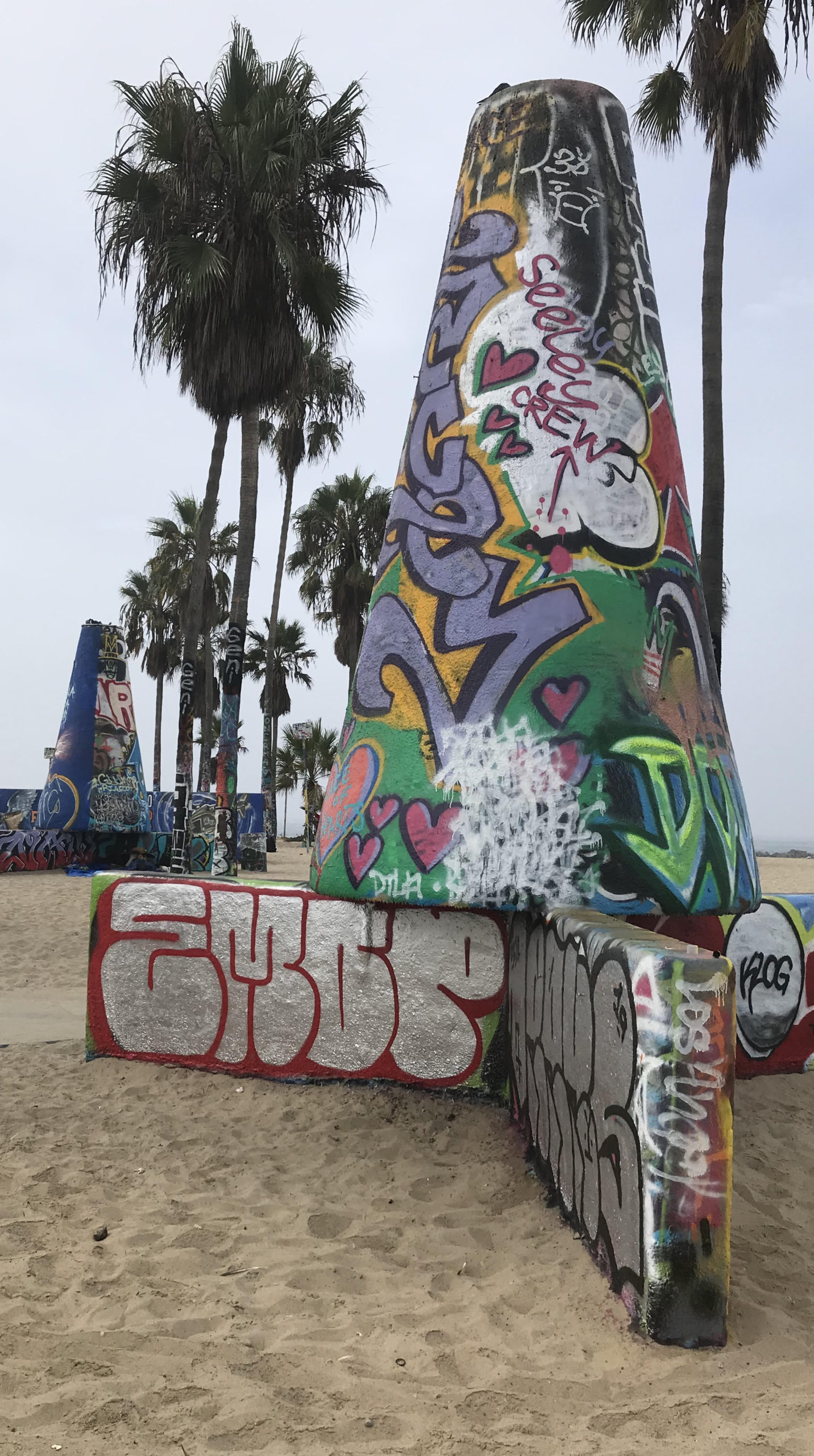
Why are some of the best tasting meals served in bedraggled dives? Why are some of the most authentic musical performances experienced in dingy bars or on street corners? What makes a space dynamic and exciting? How can spaces retain and nurture authentic expression? Venice Beach in Los Angeles is certainly gritty, but it is also one of the most dynamic public spaces in the city.
The two-and-a-half-mile ocean front promenade attracts joggers, skateboarders, surfers, beach goers, tennis and handball players, body builders, artists, street performers, cart vendors, onlookers, drug dealers and its share of homeless. What is striking is the eclectic mix of activities and the diversity of people this space attracts. I am sure the area draws its share of tourists, but it still appears to be dominated by locals living out their lives in dynamic fashion.
When a space becomes dominated by tourists and visitors it stops driving the development of that community’s culture. Tourists generally want to observe and experience something different but rarely participate in its development. At some point economic inertia lures locals and governments to take these dynamic spaces and freeze their cultural evolution. This is the only way to pre-package a predictable experience that can be marketed to the masses. This transition is when a community stops developing its culture and seeks to preserve it — like Bourbon Street in New Orleans. At one time Bourbon Street was a hot bed for jazz music, great food and drink. But it is no longer the crucible for the city’s musical and culinary innovators.
— the creative class. Rather, Bourbon Street has become a stage set for times past — a dim representation of a culture that was once alive and full of possibilities. Are all successful, dynamic social spaces — which authentically emerge from a distinct culture and lifestyle — destined to be absorbed and sanitized by the economic machine?
When I travel I search for authentic cultural experiences. The thought of booking a cruise or a packaged group tour makes me want to stay home and upgrade my cable package. Admittedly, I am a tourist when I visit Venice Beach, but it appears to me that the place is still evolving and remains an authentic expression of California culture. The variety of activities available allows me to find a point of connection and makes me feel like a participant rather than a mere observer. Does the diversity and coarseness of Venice make it resistant to being packaged and marketed as an experiential product? Or does the grit and diversity merely disguise the fact that the carnival is being controlled and curated for the curious visitor? Regardless, the first time I see a tour bus appear will likely be the last time I visit Venice Beach. For the time being, Venice Beach is one of my favorite places to go when I visit LA.
